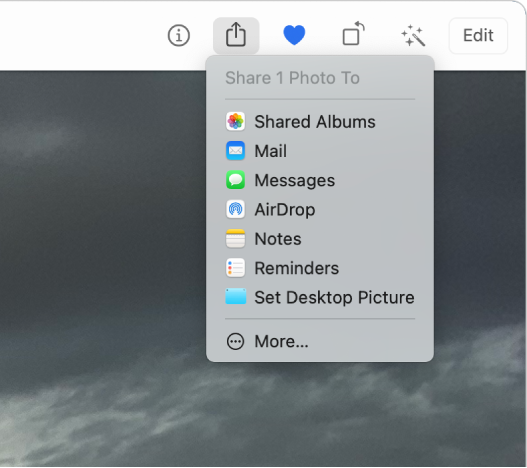
- #EXTENSIONS FOR VIDEO FILES MAC HOW TO#
- #EXTENSIONS FOR VIDEO FILES MAC FOR MAC#
- #EXTENSIONS FOR VIDEO FILES MAC CODE#
- #EXTENSIONS FOR VIDEO FILES MAC MAC#
Therefore, you are left with below choices: As a result, QuickTime fails to play AVI videos. Similarly, when you try to play AVI files in QuickTime, the player doesn’t recognized its Cinepak and ALaw 2:1 codecs used in the video. If the same are not used by the media player it won’t play the file. When you open any file in a media player, it examines both the audio and video codecs within the video file.
#EXTENSIONS FOR VIDEO FILES MAC MAC#
Here we bring various methods you can use to open AVI files on Mac systems. If you want to play any video file on Mac, the macOS should be able to recognize the file type and its codecs. The limitation is annoying as AVI is a popularly used video format. Mac computers cannot play AVI videos in its native QuickTime media player. Please check the file and upload again.The AVI or Audio Video Interleave by Microsoft is a container format that has.

Note that the MIME type used when the actual file is served to the user's browser is not determined by MediaWikis MIME-detection: files are not served through MediaWiki, but directly by the web server. for now, see $wgAntivirus and $wgAntivirusSetup MIME types when downloading If you really want to allow even such dangerous files, you can hack the detectScript function in the UploadBase.php file to always return false. Note that the detection of HTML and JavaScript is rather broad, and may report false positives - this is so because the Microsoft Internet Explorer is known to interpret files that look like HTML, regardless of file extension or MIME type reported by the web server, which would lead to the site being vulnerable to cross-site scripting attacks. Notably, anything that looks like one of the following formats will be rejected, regardless of detected mime type or file extension: HTML, JavaScript, PHP, shell scripts. In addition, MediaWiki rejects all files that look like scripts that could be accidentally executed on either the web server or the user's browser.
#EXTENSIONS FOR VIDEO FILES MAC CODE#
TEXT // Plain text (possibly containing program code or scripts) OFFICE // Office Documents, Spreadsheets (office formats possibly containing applets, scripts, etc) MULTIMEDIA // Scriptable Multimedia (flash, advanced video container formats, etc) VIDEO // simple video file (ogg, mpg, etc no not include formats here that may contain executable sections or scripts!) Can scale up.ĪUDIO // simple audio file (ogg, mp3, wav, midi, whatever) Can't scale up.ĭRAWING // some vector drawing (SVG, WMF, PS.
#EXTENSIONS FOR VIDEO FILES MAC HOW TO#
It is currently not used for much, but could be used in the future to determine how to present a file to the user.īITMAP // some bitmap image or image source (like psd, etc).

This information is stored in the image table, along with the mime type. The media type is specific to MediaWiki, and determines what kind of media is contained in the file, as opposed to what format the file is in. Note that for OGG files, the media type is determined programmatically: AUDIO for vorbis, VIDEO for theora, MULTIMEDIA otherwise. Image/svg image/svg+xml application/svg+xml application/svg $mime -> addExtraInfo ( 'text/example ' )

:max_bytes(150000):strip_icc()/dmg-files-5a70925bba6177003785cc17-64d5a90ff22744d6a18e67005953d68b.png)
The MIME type define file extensions that are allowed for a given mime type. To support extra mime types for uploads on your wiki, you can use the MimeMagicInit hook since MediaWiki 1.24. MediaWiki stores its default mime types and media types in MimeMap.php. Pending: how does this relate to $wgCheckFileExtensions ? MIME type validation You can also disable the MIME type check completely by setting $wgVerifyMimeType = false - note however that this is very insecure: arbitrary files can then be uploaded with a "harmless" file extension, but may possibly still get executed/interpreted in a harmful way on the client computer, or the web server. Note that this only works for some well known image types (see ), other files will be accepted without any additional checks! If no mime module is installed, and no external mime detector command is configured, MediaWiki relies on PHP's GD module to detect the mime type.
#EXTENSIONS FOR VIDEO FILES MAC FOR MAC#
The GNU file utility is also available for Mac OS-X, and for Windows via Cygwin. Note that the file utility provided by other Unixes may not support the -i option, and will thus not work. This uses the GNU file utility to determine the type of the file, which should work right away under Linux. $wgMimeDetectorCommand = "file -bi" # on Linux $wgMimeDetectorCommand = "file -bI" # on macOS


 0 kommentar(er)
0 kommentar(er)
